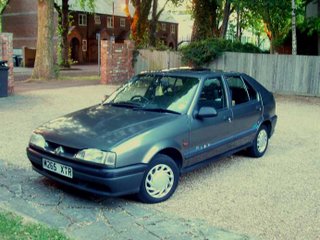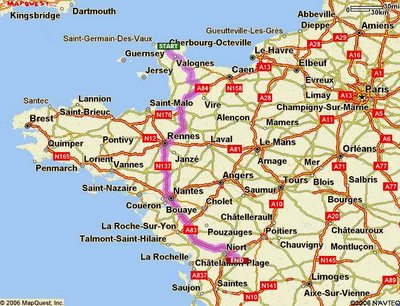“Saving the World has Never Been so Ginger!”
 No, that’s not the tagline of the new Adventure Eddy story (although perhaps it should be.) That’s the tagline of Vincent and the Doctor – one of the new episodes of the fifth and latest season of Doctor Who. I was duly nervous when I approached it – knowing that there’s been a bit of controversy regarding Doctor Who and so-called ‘Gingerism’ recently.
No, that’s not the tagline of the new Adventure Eddy story (although perhaps it should be.) That’s the tagline of Vincent and the Doctor – one of the new episodes of the fifth and latest season of Doctor Who. I was duly nervous when I approached it – knowing that there’s been a bit of controversy regarding Doctor Who and so-called ‘Gingerism’ recently.The story itself saw the Doctor and gorgeous ginger companion Amy perusing the pictures in the Musee d’Orsay – and the Doctor spotting something iffy in his painting The Church at Auvers. Jumping into the TARDIS, they whisk back to 19th century Provence to ask the man himself about the oddity in his impressionist masterpiece.
Scottish actor Tony Curran is en place as Van Gogh – looking every bit the part (including the red hair), despite his inexplicable Scottish accent (which is dismissed as a TARDIS translation gliche, as explained when Van Gogh asks the similarly-accented Amy if ‘she’s from Holland, like he is.’ )
Dynamic, likeable, excitable and a bit bonkers, Van Gogh is portrayed as the quintessential tortured artist – his suffering made even worse by the fact that a fiendish beast is stalking the cobbled streets of Auvers-sur-Ois and only he can see it. When they do eventually track it down, tragedy taints their victory when they realize the monster was just as much of a victim as the people it slaughtered.
But like the majority of the new Doctor Who episodes, the hunt for the alien-beastie is in reality just a subplot – the story focuses more on the Doctor and Amy’s interactions with Vincent Van Gogh. Writer Richard Curtis – yes, he of Four Weddings and a Funeral – presents the episode as more of a history lesson, giving us a glimpse into Van Gogh’s fractured mental state and a lovingly detailed examination of his artistic talent.
The best point in the episode is when the three of them are gazing into the moonlit Provence sky and the stars and moon melt into Van Gogh’s vision of them – the swirls of color that later become The Starry Night.
Faced with the foreknowledge of Van Gogh’s tragic suicide, Amy and the Doctor break the commandments of time travel and whisk their new friend to the 21st century, where he tearfully sees what he considered his ‘worthless’ paintings on display in the Musee d’Orsay – and a curator (a cameo by Bill Nighy) describes him as the most talented painter in history.
But after they return him home, Amy and the Doctor are dismayed to discover that they didn’t change anything – Van Gogh’s appointment with a revolver occurs as predestined. But it’s tragedy tinged with optimism – as the Doctor explains to Amy, the good things in somebody’s life aren’t canceled out by the bad and at least what they did for Vincent added to those ‘good things.’
As far as I was concerned, this was one of the best episodes of Doctor Who I’d ever seen – even in a series that continues to impress. When David Tennant and Russell T. Davies left the show at the end of the last season, I was certain things would go downhill (how could you top Tennant’s performance?)
Yet Stephen Moffatt and Matt Smith have managed to make things get consistently better and better. Tighter scripts, deeper characterization and none of that contrived politicizing that Davies is so fond of.
I think what appealed to me about this episode – aside from the French setting and impressionist art – was the way in which they examined what Van Gogh was like during his life compared to the legacy left by his paintings. Drunk, mad, untalented and alone – he was a truly tragic figure who killed himself considering his life a failure.
It’s only from outside of his insular perspective that it’s possible to see the significance of the legacy he left, and the generations of lives he touched. I think for people living with their own flash of Van Gogh’s madness – call it depression, bi-polarism or whatever you want – it’s a reminder that even if you consider yourself utterly insignificant during your bleakest moments, there are probably more people than you realize who think just the opposite about you.
The other noteworthy thing about this episode was, of course, ‘the ginger thing.’ People have complained that Doctor Who is ‘gingerist’ after both David Tennant and Matt Davies noted that their new incarnations weren’t redheaded. Actually, it was just the opposite – both new regenerations were actually disappointed, as the doctor ‘had never been ginger before.’
The final lines of dialogue – in which Amy discusses Van Gogh’s marriage proposal to her and muses ‘our kids would have really, really red hair’ is followed up by a joking reference to a Pond/Van Gogh child being ‘the ultimate ginger.’ It was actually a little trite and counterproductive.
And since we’re talking about the few negative spots in this episode – I’m sure I wasn’t the only person to point out that while Van Gogh apparently lived in Provence during his adventure with the Doctor and Amy, the Church of Auvers they coolly strolled down the road to visit is actually located in the suburbs of Paris – about 500 miles north.
Creative license, I guess – and hardly a significant criticism given just how great the rest of the episode was.






 Sarkozy was very diplomatic about things - stopping just short of endorsing Obama as America's next president, but admitting: "I wish Barack Obama luck — if it's him, France will be very happy."
Sarkozy was very diplomatic about things - stopping just short of endorsing Obama as America's next president, but admitting: "I wish Barack Obama luck — if it's him, France will be very happy."


















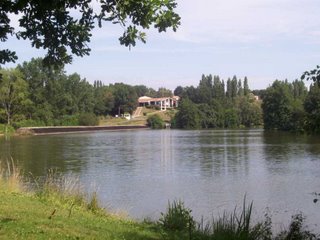

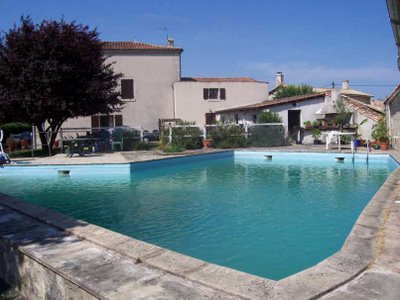
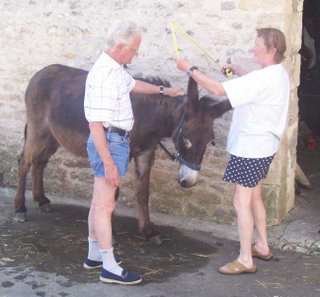 And, of course, no trip to France is complete without some pictures of Piglet.
And, of course, no trip to France is complete without some pictures of Piglet.


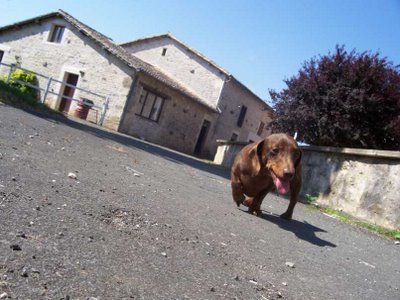 Nothing to report except a large Gin and Tonic.
Nothing to report except a large Gin and Tonic.